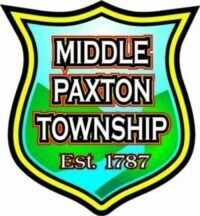Penn State Extension is offering numerous free educational on-lot septic system webinars for all! Click the link below for a full list of dates for […]
Read moreArchives: Notices
Municipal Solid Waste and Recycling Update
At the May 6, 2024, regularly advertised business meeting, the Middle Paxton Township Board of Supervisors voted to extend the Municipal Solid Waste and Recycling […]
Read moreHousehold Hazardous Waste Pickup Program
Due to contract issues between Waste Management and Dauphin County, the Household Hazardous Waste Pickup Program is currently NOT available to Dauphin County residents. Residents […]
Read moreTrash and Recycle Services Update
The current Solid Waste and Recycling contract with Waste Management expires on September 30, 2024. As a result of feedback received from township residents, Middle […]
Read moreWaste Management Notification
As permitted by contract, the refuse removal costs for Middle Paxton Township residents will be increased with their next quarterly invoice. The increase is due […]
Read moreOn-Lot Sewage Management Program
Reminder that the On-Lot Sewage Management Program is now in effect. Residents in Zone 1 (West of 225 to the western banks of the Susquehanna […]
Read moreLINE PAINTING
Line Painting will occur on the following dates: Friday, October 20, 2023 on Hecks Drive and Allegheny Street. Please use caution when driving through these […]
Read moreFOR IMMEDIATE RELEASE: Roadwork this Week on WB Route 22/322 at Dauphin Boro/Stony Creek Exit in Dauphin County
Harrisburg, PA – The Pennsylvania Department of Transportation (PennDOT) announced today that a PennDOT maintenance crew in Dauphin County is scheduled to perform road work […]
Read moreWaste Management Contract Update: Year Two
The second year of the Township’s two-year contract with Waste Management will begin October 1, 2023. The 2-year contract costs for full-service billed on a […]
Read more
